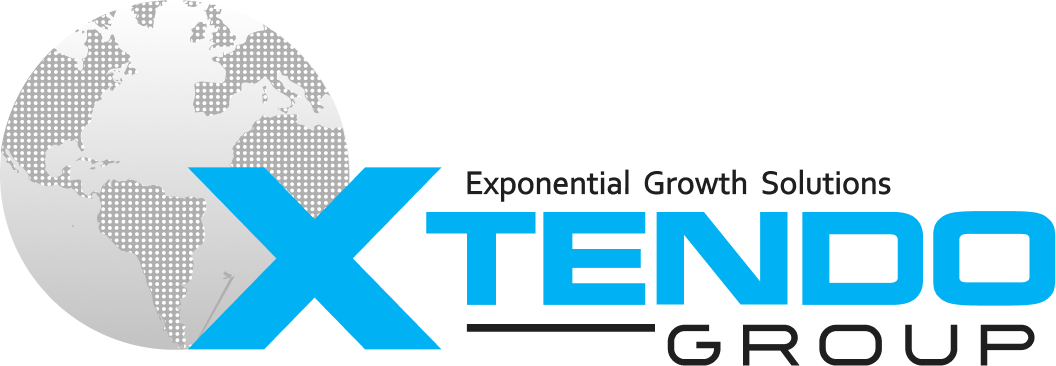September 24, 2024
By: Josefina Barbero, Human Capital Lead at Xtendo Group BPO
In the digital era, Artificial Intelligence has evolved from being a simple tool to becoming a strategic pillar in talent management. Companies are beginning to recognize the value AI brings to all aspects of the employee lifecycle, from recruitment to development and retention. In this blog, we explore how AI is transforming talent management, driving organizations to be more agile, inclusive, and prepared for future challenges.
1. Generative AI as a Driver of Talent Transformation in Companies
AI is no longer just an automation tool; it has become a transformational force redefining how talent is managed and developed within organizations. From process optimization to personalized professional development, AI creates new opportunities for employees to maximize their potential.
By handling routine tasks, AI allows employees to shift their focus to more strategic and creative functions. Professionals can now dedicate more time to innovation, solving complex problems, and contributing to the company’s long-term growth, supported by AI-driven insights and data-based decisions.
Freeing employees from repetitive tasks enables them to focus on projects that require human skills such as critical thinking and innovation. AI also helps make more informed, data-driven decisions by analyzing large volumes of information and providing valuable insights.
In the field of Training and Development, AI can help create personalized training programs that adapt to each employee’s needs and learning styles.
Recently, Microsoft and LinkedIn released a study titled “AI at Work is Already Here,” revealing that AI skills are becoming more valued than job experience. Could it be true that we won’t be replaced by AI but rather by someone who knows how to use it? This intriguing statement is explored in-depth in the “Voices of Change” podcast, featuring a conversation between Roberto Icasuriaga Gatti, General Manager of Modern Work, Security, and Business Applications at Microsoft, and Martín Barbero, CEO and Founder of Xtendo Group.
2. AI and Employee Experience: Enhancing Satisfaction and Retention
AI is not only revolutionizing the way tasks are performed but also playing a crucial role in improving the employee experience within organizations. By using AI to analyze behavior patterns and real-time feedback, companies can quickly identify areas of dissatisfaction and proactively enhance the workplace environment.
AI enables more effective retention strategies by predicting which employees are at a higher risk of leaving. By analyzing factors such as job satisfaction, participation in development programs, and interactions with supervisors, leaders can design personalized interventions to retain top talent.
Moreover, AI enhances internal communication and employee well-being. AI-powered tools like chatbots and virtual assistants can instantly respond to employee inquiries, providing easy access to information and reducing administrative workload. This not only saves time but also contributes to a more efficient and pleasant work environment.
3. AI Use Cases in Talent Management
AI can be valuable across all Human Resources processes. Here are some key examples:
- Performance Management: AI-driven tools can monitor employee performance in real time, provide instant feedback, and help managers identify areas for improvement and development opportunities.
- Recruitment and Selection: AI algorithms can analyze resumes, conduct screenings, and evaluate candidates more quickly and objectively, eliminating unconscious biases and ensuring that the best candidates advance in the hiring process.
- Career Development: AI not only helps find the right talent but also plays a crucial role in employee development. By analyzing performance, skills, and aspirations, AI can recommend career advancement opportunities and internal mobility. This enhances employee satisfaction and retention while ensuring companies nurture future leaders and maximize workforce potential.
4. Fostering Creativity and Innovation
Rather than replacing human creativity, AI amplifies it, helping employees explore new ideas and creative approaches in areas like product design and content creation.
AI can also act as a collaborator, assisting employees in discovering new solutions and optimizing their creative processes. Instead of replacing human creativity, AI can enhance it by offering new perspectives or starting points that employees can further develop.
5. The Future of Work with AI
HR departments are in a strategic position to lead the integration of Artificial Intelligence into organizations. Beyond technical implementation, HR has the critical responsibility of ensuring AI enhances employees rather than dehumanizing talent management. This means leveraging AI to automate administrative processes and provide precise insights on employee performance and development while maintaining a people-centered approach. HR leaders must ensure AI improves the work experience, fostering a culture of support, inclusion, and continuous growth.
As AI continues to evolve, the future of work will change significantly. Job roles and responsibilities within companies will be redefined, with a stronger emphasis on skills that AI cannot replicate, such as creativity, empathy, and leadership. It is crucial for organizations to start preparing employees for this transition, helping them thrive in a work environment where AI and human talent coexist harmoniously.
Discover more about AI’s impact on employees and businesses through the experience of Roberto Icasuriaga Gatti. Learn about its applications, use cases, and how it helps manage daily office operations.
“AI is not just a technology; it is a new way to amplify human creativity and intelligence.” – Satya Nadella, CEO of Microsoft.

